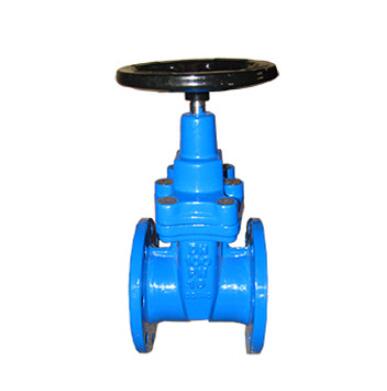Gate valves are essential components in fluid handling systems, widely used for their ability to completely stop or allow the flow of liquid or gas. These valves are known for their simplicity, reliability, and versatility across various industries. This article delves into the different types of gate valves and their specific applications.
Rising Stem Gate Valves
Rising stem gate valves are commonly used in applications where visibility of the valve position is critical. The stem rises out of the valve body when the valve is opened, providing a clear indication of its status. These valves are frequently found in industrial environments such as water treatment plants, chemical processing facilities, and power generation stations.
In water treatment plants, rising stem gate valves control the flow of water and chemicals, ensuring precise management of water quality and distribution. In chemical processing, these valves handle various corrosive substances, where the visible stem helps operators ensure proper operation and safety. Power generation plants utilize rising stem gate valves to manage steam and coolant flow, essential for maintaining operational efficiency and safety.
Non-Rising Stem Gate Valves
Non-rising stem gate valves are ideal for applications with limited vertical space. Unlike rising stem valves, the stem does not extend outward when the valve is opened or closed. These valves are suited for underground installations, such as water and gas pipelines, where space constraints are a concern.
In municipal water supply systems, non-rising stem gate valves are commonly used to regulate the flow of water through extensive pipeline networks. Gas distribution systems also employ these valves to control the flow of natural gas in urban and suburban areas. Their compact design makes them suitable for installation in confined spaces, including utility tunnels and underground chambers.
Wedge Gate Valves
Wedge gate valves are known for their robust design and ability to provide a tight seal. These valves use a wedge-shaped gate to stop the flow of fluid, making them suitable for high-pressure and high-temperature applications. Wedge gate valves are widely used in the oil and gas industry, as well as in refineries and petrochemical plants.
In the oil and gas sector, wedge gate valves control the flow of crude oil and natural gas, often under high pressure and extreme temperatures. Refineries utilize these valves to manage the flow of various hydrocarbons during the refining process. Petrochemical plants employ wedge gate valves in systems handling aggressive chemicals and high-temperature fluids, ensuring reliable operation and leak prevention.
Parallel Slide Gate Valves
Parallel slide gate valves feature a flat gate that slides between two parallel seats, providing a tight seal and minimizing wear and tear. These valves are particularly useful in applications requiring frequent operation, such as in power plants and industrial steam systems.
Power plants use parallel slide gate valves to control the flow of steam and condensate in their piping systems. These valves are essential for maintaining the efficiency and safety of steam turbines and boilers. In industrial steam systems, parallel slide gate valves regulate steam distribution, ensuring consistent pressure and temperature control across various processes.
Knife Gate Valves
Knife gate valves are designed with a sharp-edged gate that can cut through thick fluids and solids. These valves are ideal for applications involving slurry, pulp, and wastewater. Industries such as mining, paper and pulp, and wastewater treatment extensively use knife gate valves.
In the mining industry, knife gate valves handle abrasive slurries containing minerals and ores, ensuring reliable flow control and minimal clogging. The paper and pulp industry utilizes these valves to manage the flow of pulp mixtures, which often contain fibrous materials. Wastewater treatment plants employ knife gate valves to regulate the flow of sludge and other solid-laden fluids, maintaining efficient processing and treatment.
Conclusion
Gate valves play a crucial role in various industries, providing reliable flow control and isolation. The choice of gate valve type depends on specific application requirements, such as pressure, temperature, and the nature of the fluid being handled. For those seeking more information or looking to procure these essential components, contact us for expert guidance and assistance. As a leading supplier of gate valves, we are committed to delivering high-quality products tailored to your needs.



